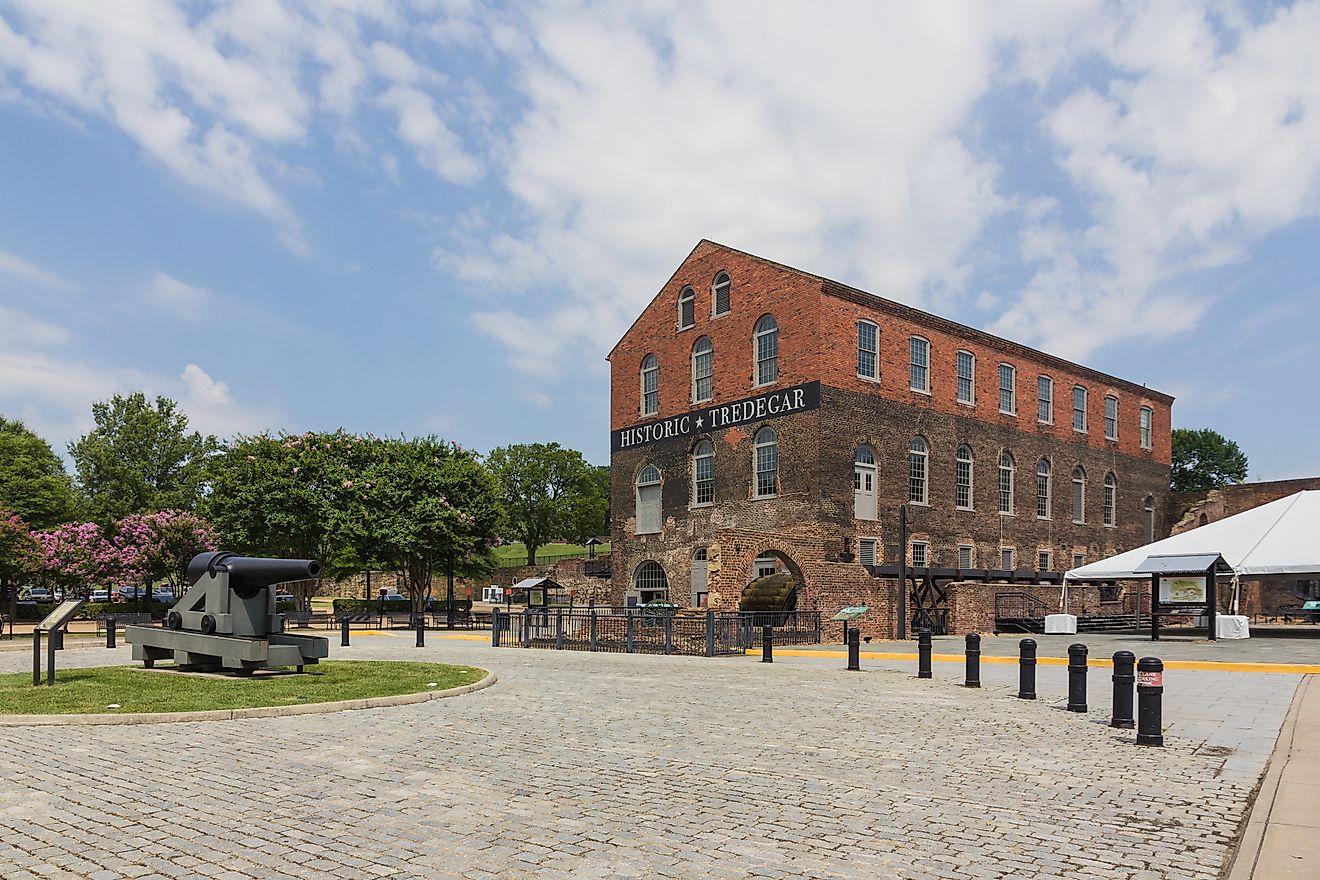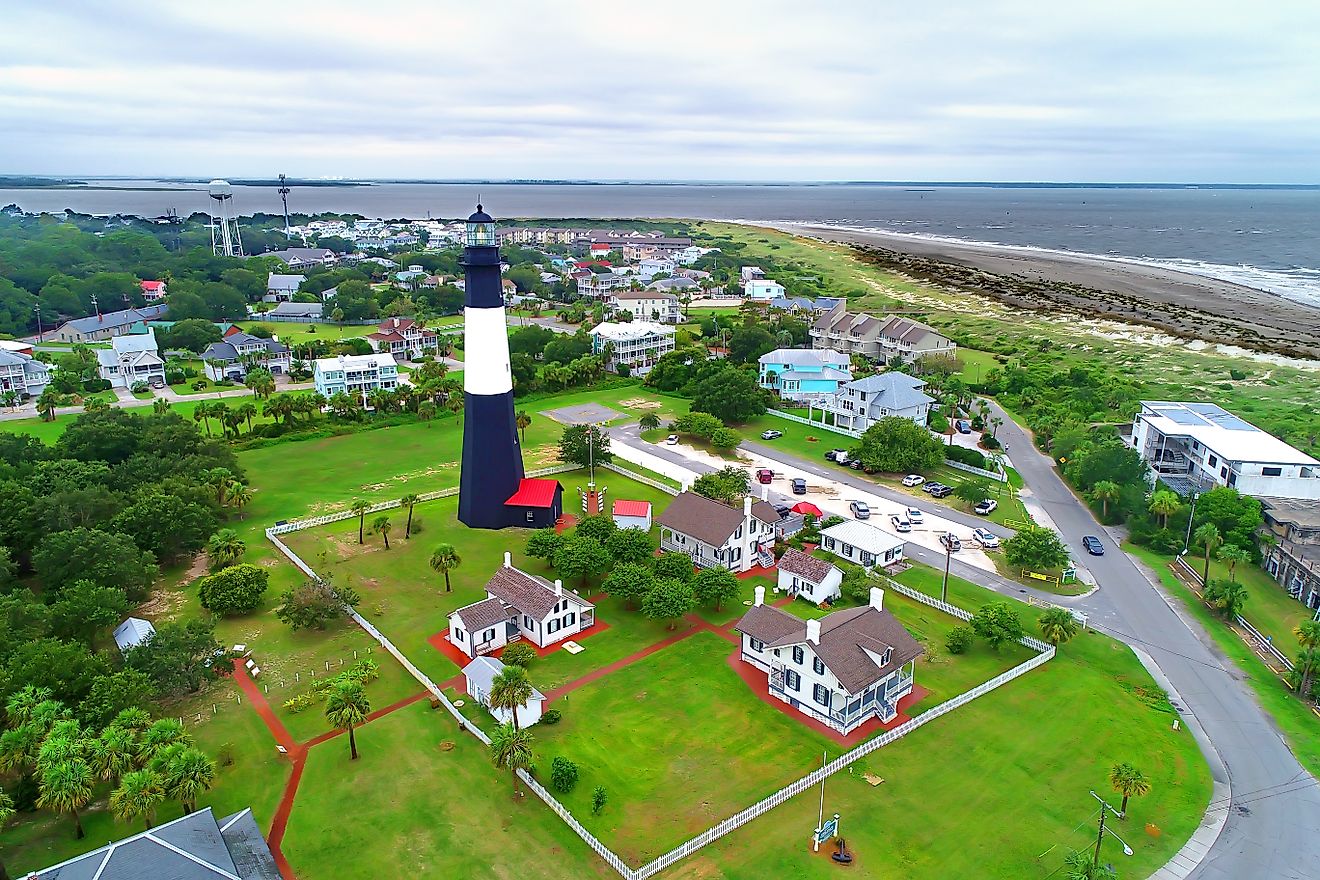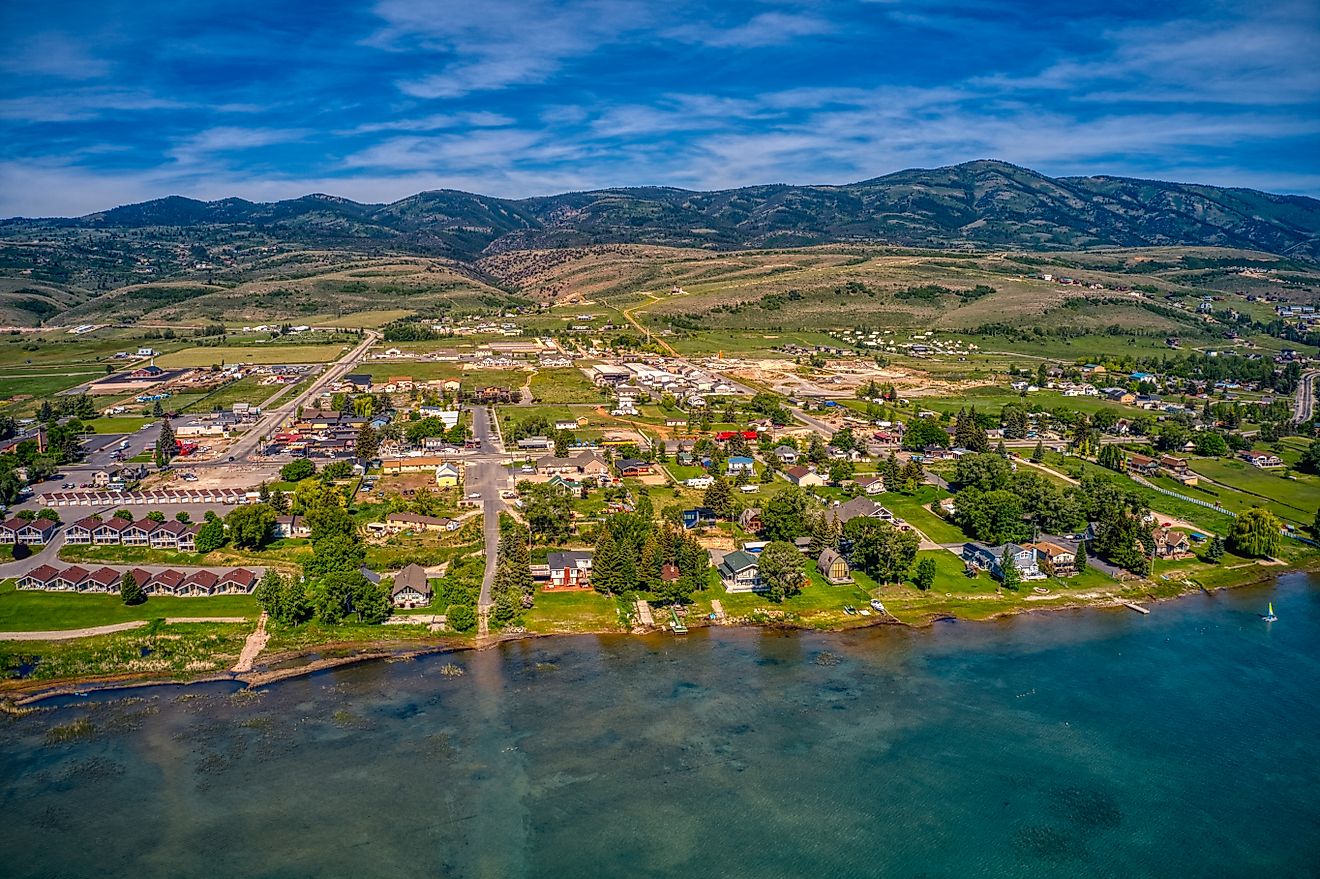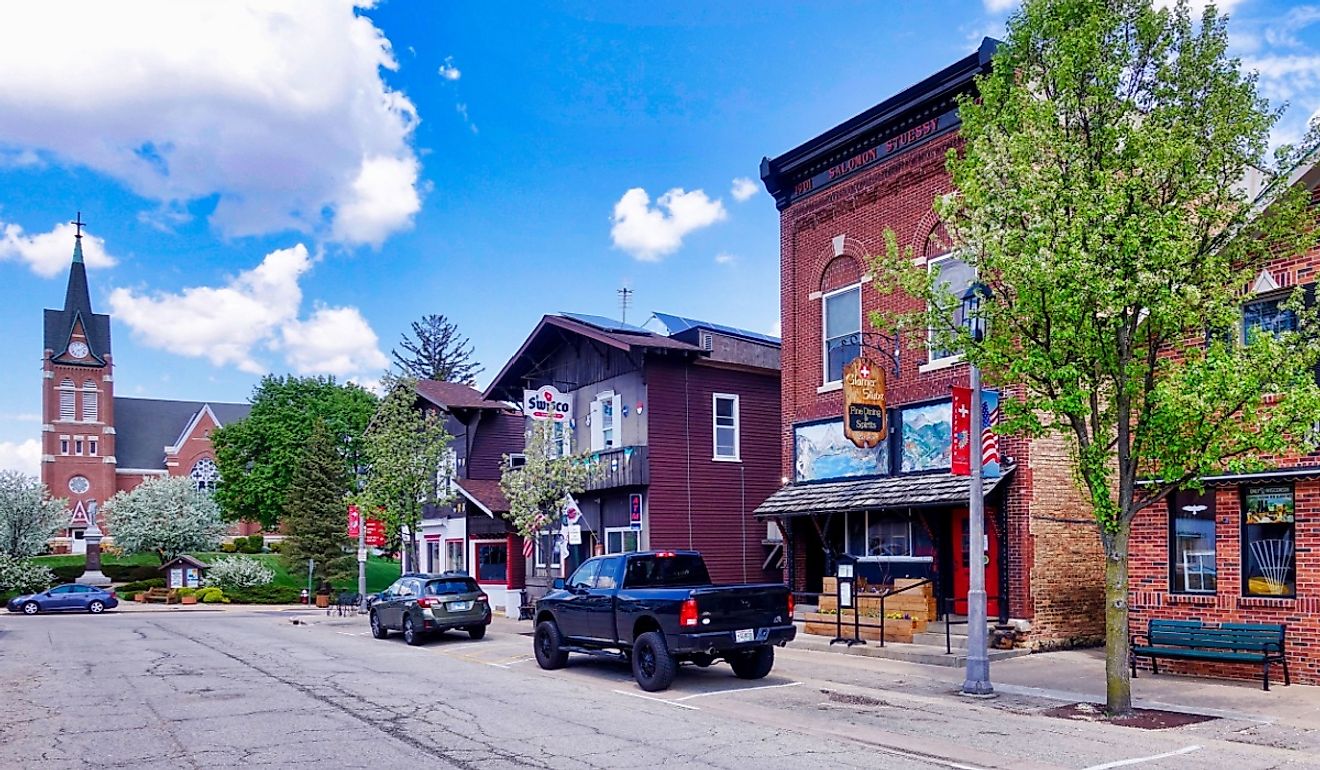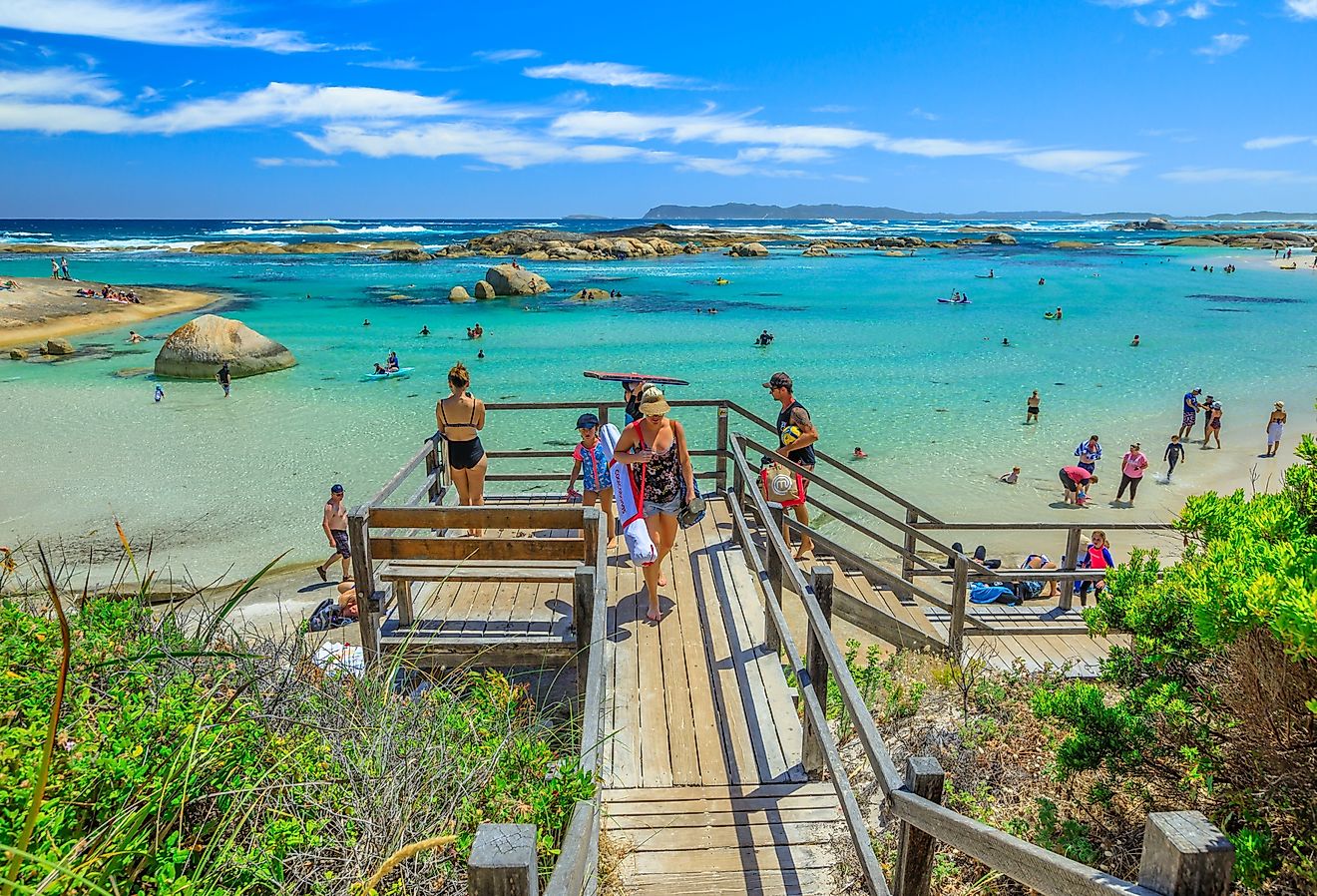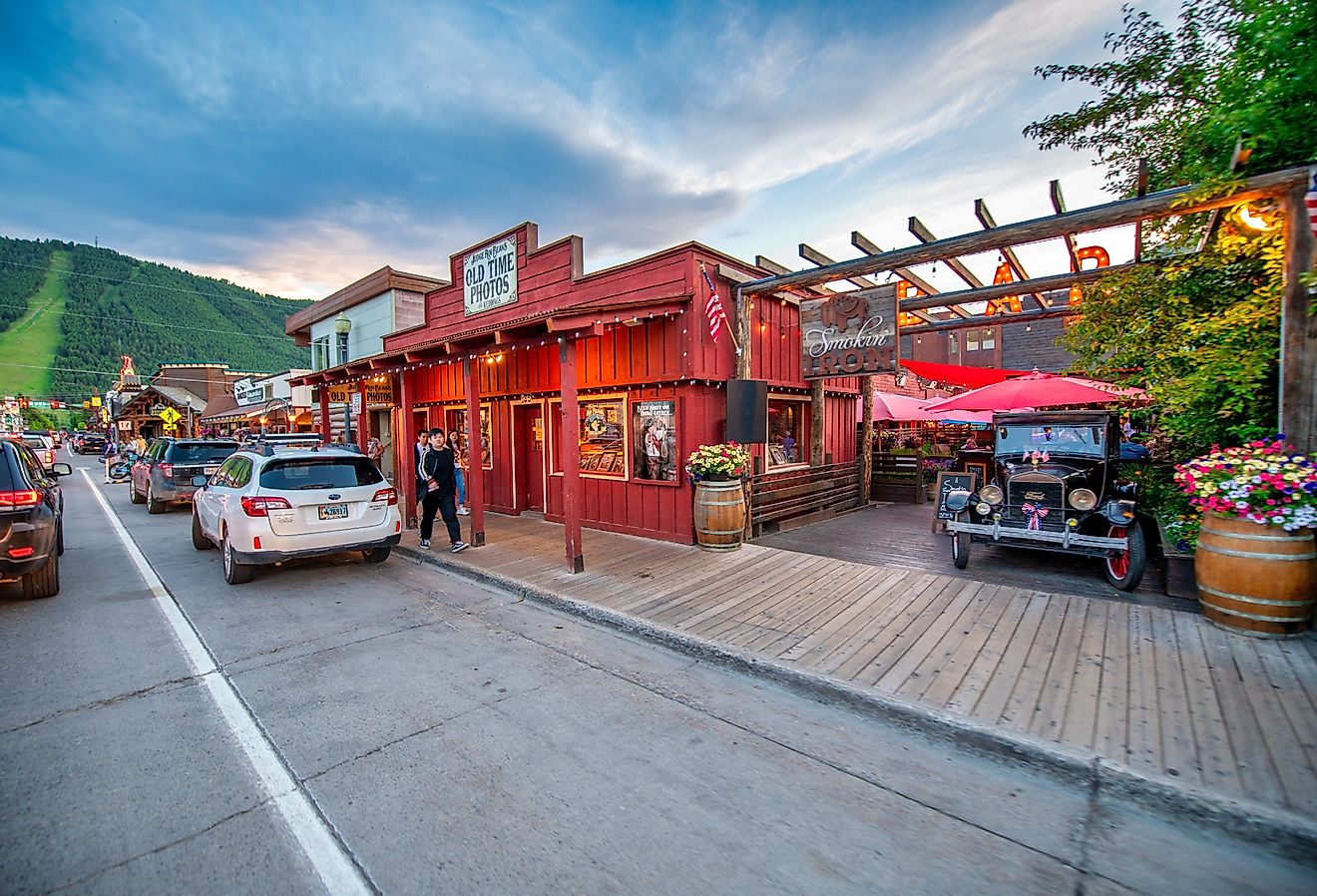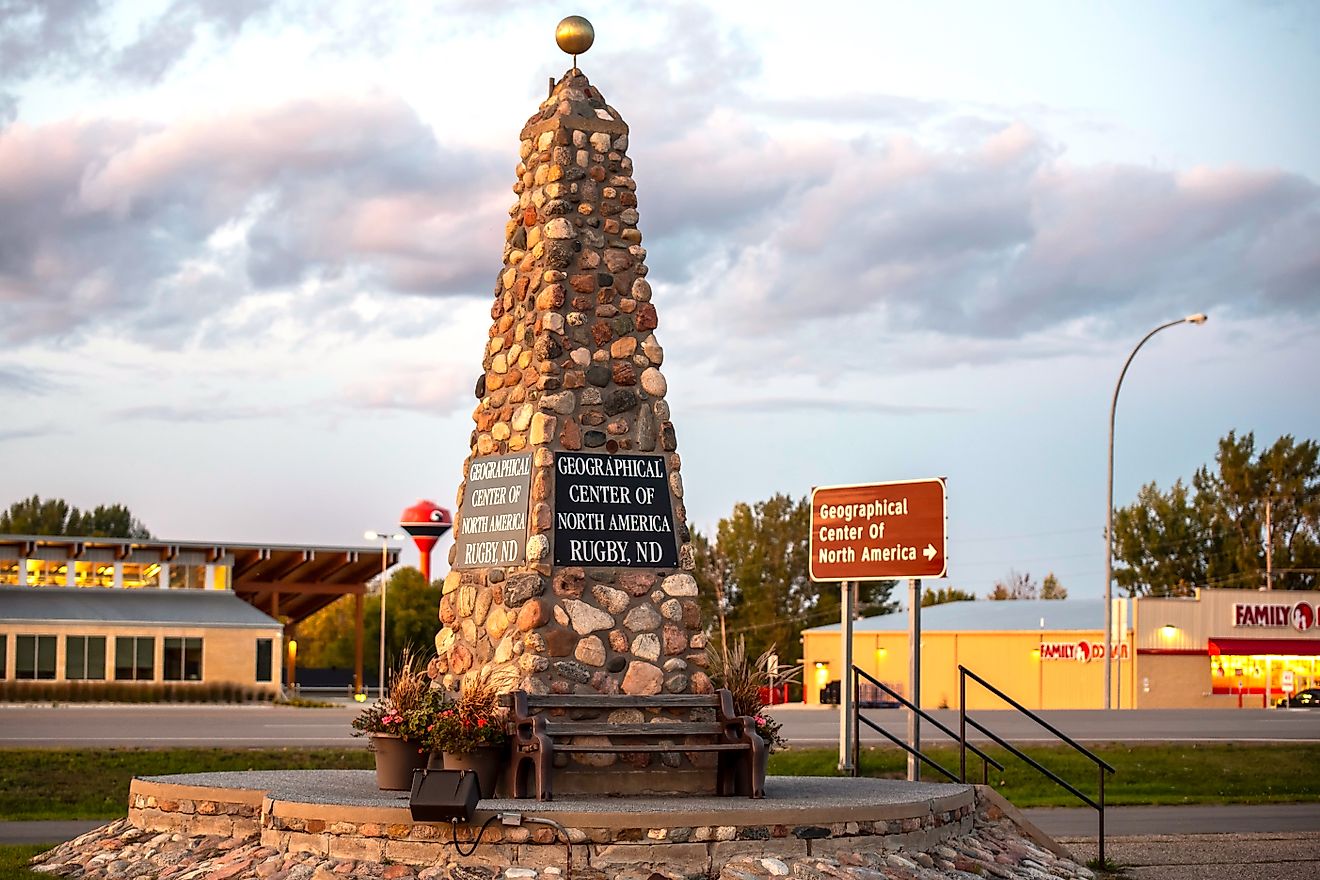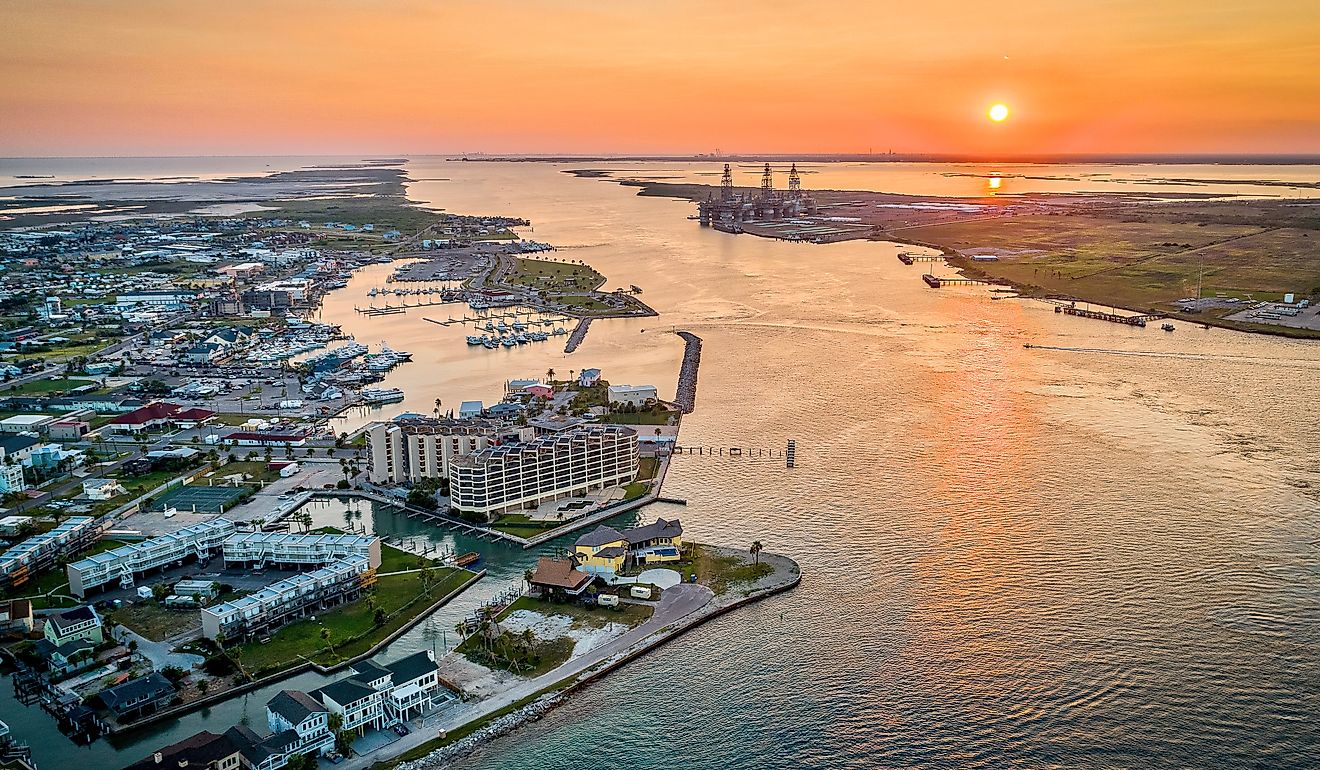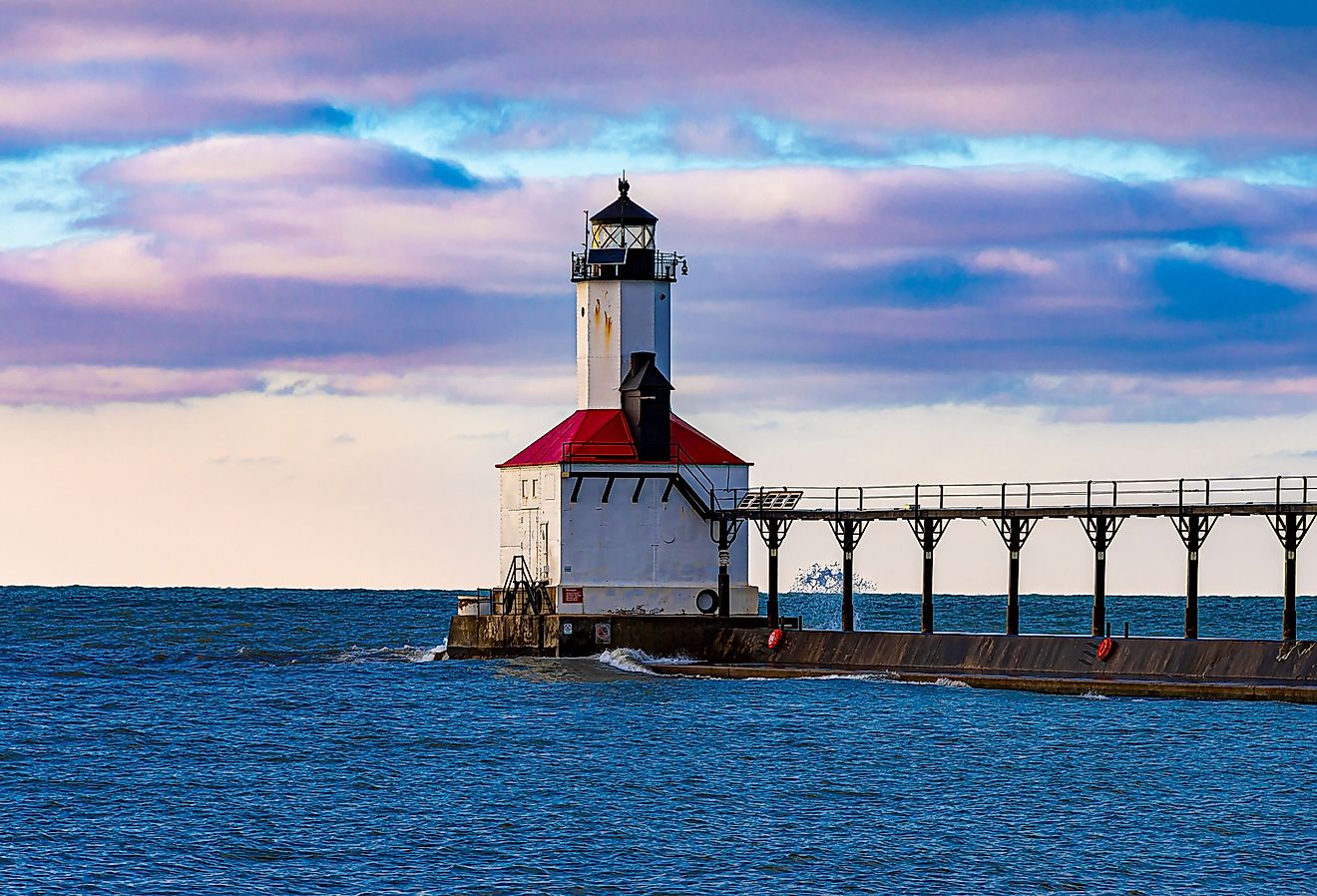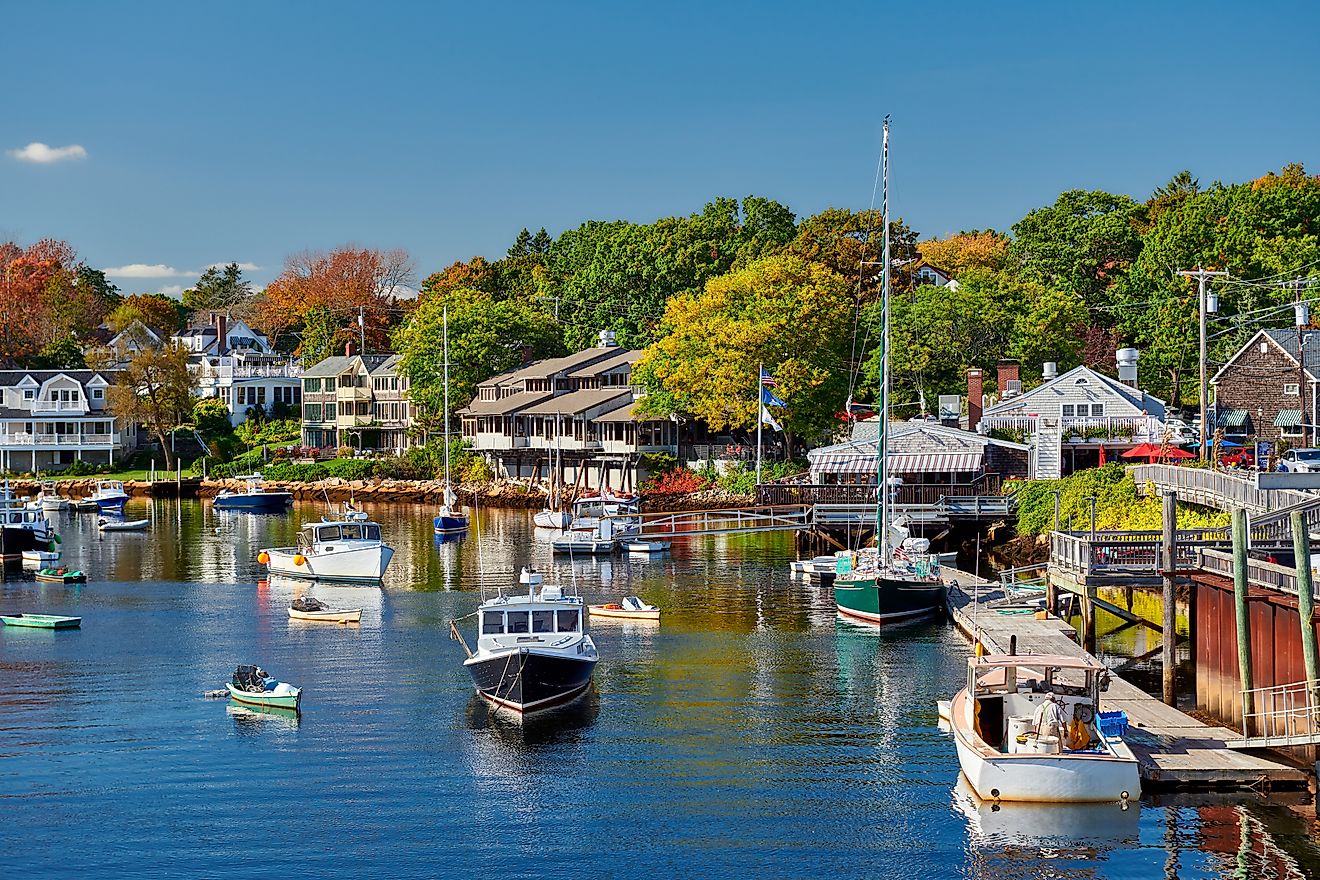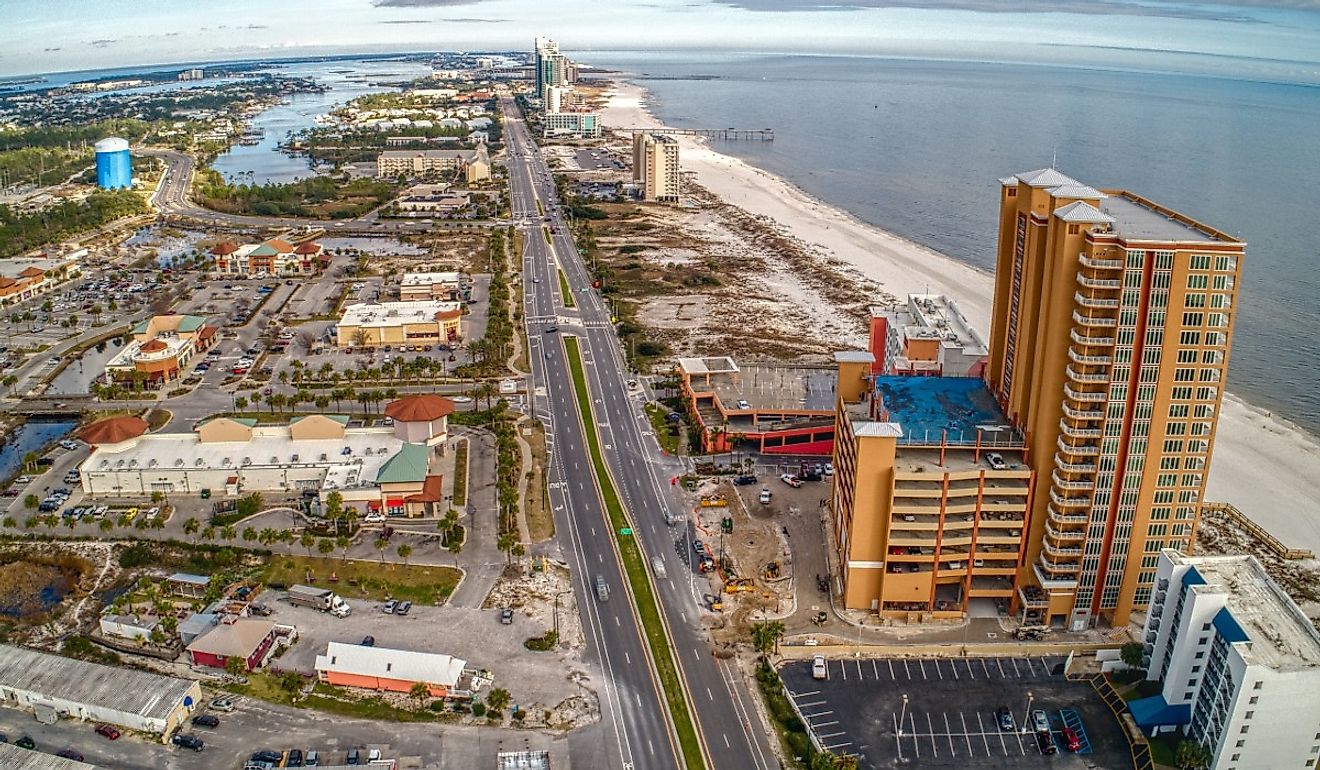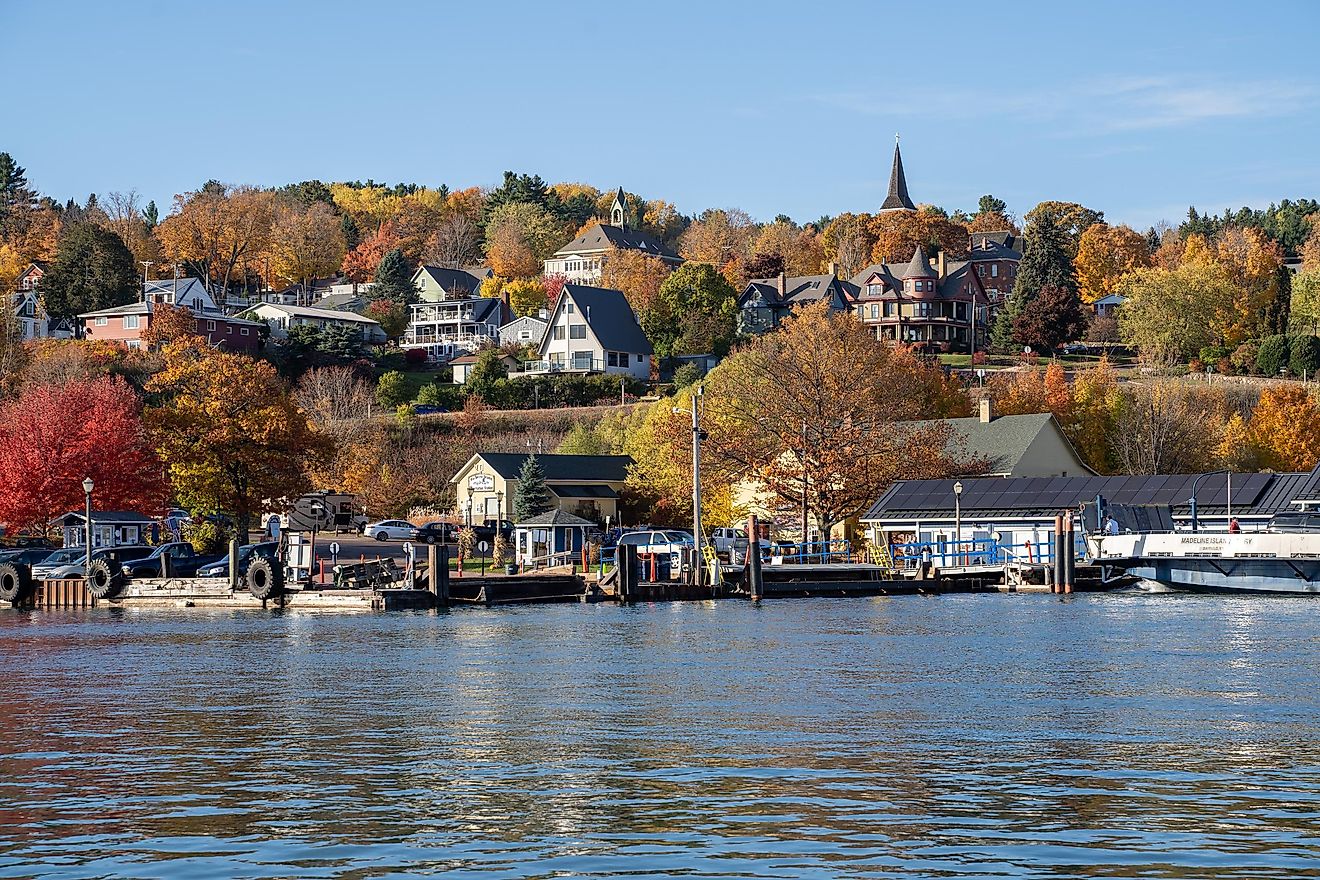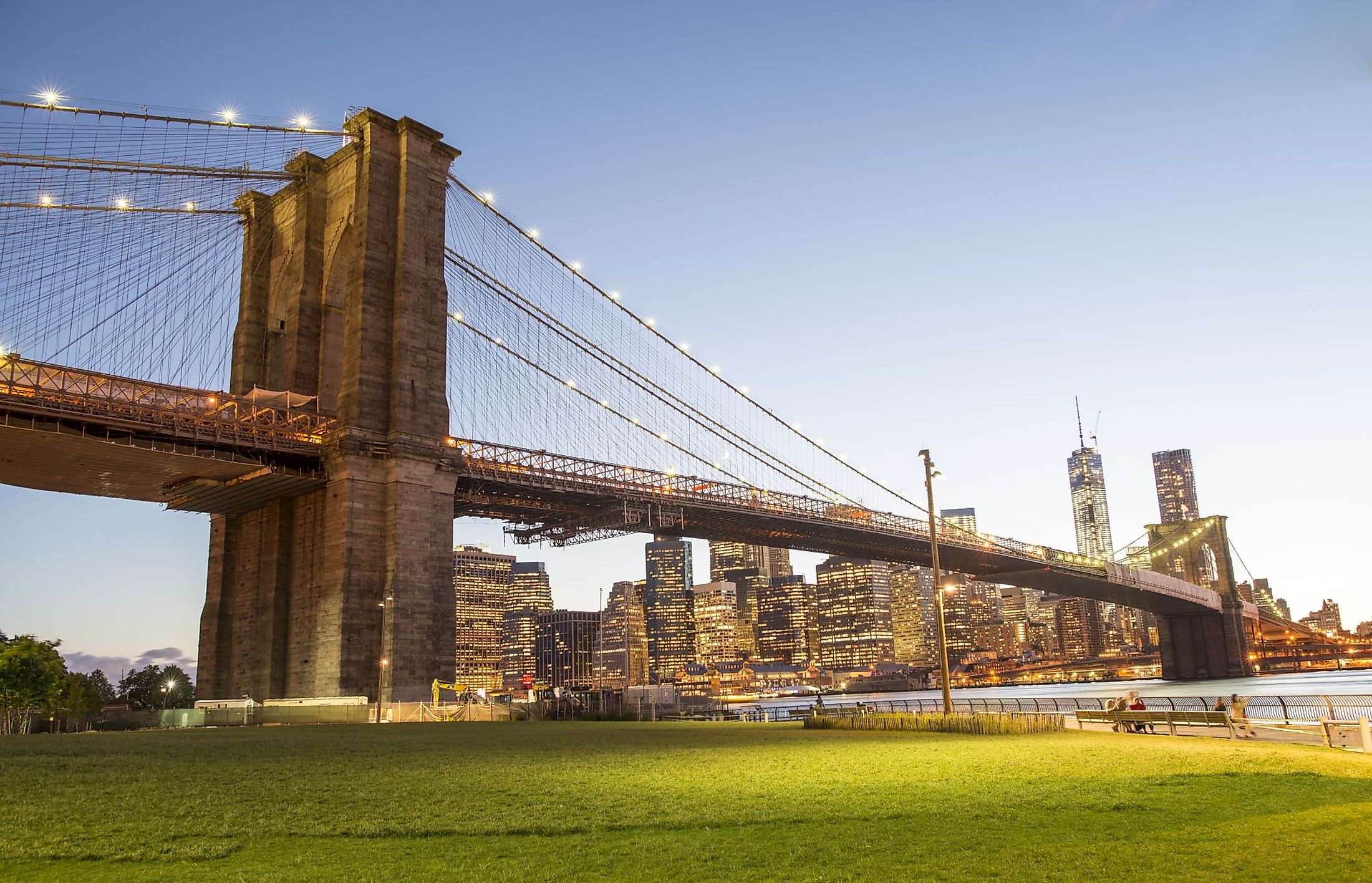
Brooklyn Bridge
The Brooklyn Bridge is a hybrid cable and suspension bridge in New York City, New York, United States. It crosses over the East River and connects Manhattan Island to the borough of Brooklyn on Long Island. When it was first proposed, and indeed for much of its early life, the bridge was called the New York and Brooklyn Bridge, or the East River Bridge as it was the only bridge to span the river at that time. The cost of the bridge's construction was roughly $15.5 million, which would equal to around $416,625,000 in 2020. It is believed that 27 men lost their lives during the construction process, though there are minor debates about this number.
Construction
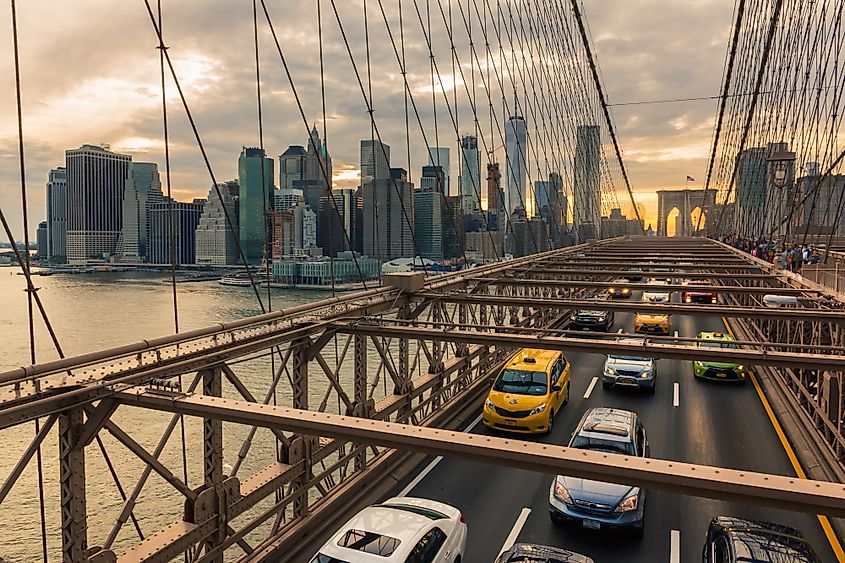
Work first began on the Brooklyn Bridge in 1870, when caissons were constructed and dug in preparation for the suspension towers. Complications including a large fire caused delays during this process which meant the caisson portion of construction actually took several months. Pressure was extremely high within the caisson holes, especially the second set built on the Manhattan side, which was much deeper. Because of this, many of the workers grew sick and some even died from “the bends”. After the caissons were dug out, masonry towers began to be built. These towers took another four years to make. The Brooklyn tower was completed in 1874, and the Manhattan in 1876. As the bridge is a hybrid cable and suspension bridge, the addition and spinning of the cables was a major part of the building process. Temporary wires were first used in 1876, while contracts were debated for the more permanent steel wiring. Eventually, through some hiccups and controversy, the wires were strung, and the last cables were put in place in 1878.
Opening
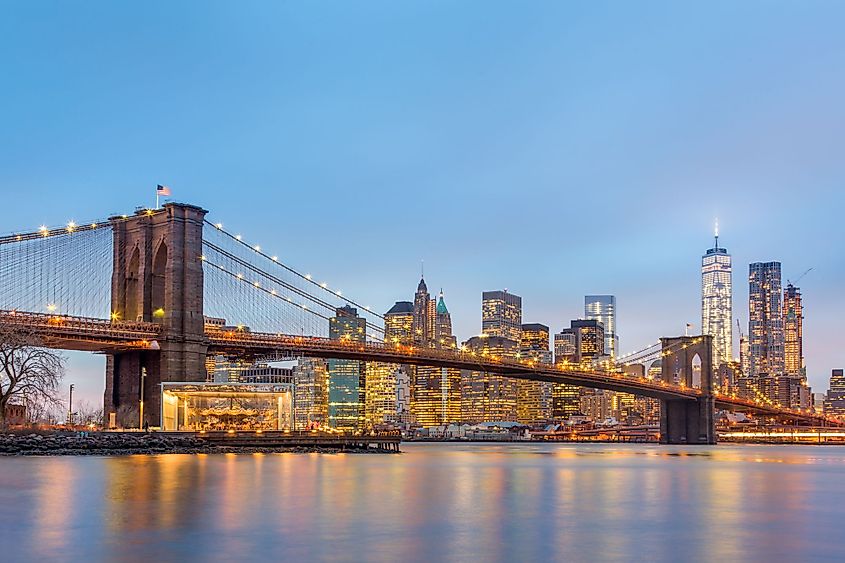
The bridge officially opened to the public on May 24, 1883. Much fanfare and celebrations were held, and thousands of civilians came to witness the occasion. The ceremony was also attended by the US President at the time, Chester A. Arthur. The Mayors of both New York City - Mayor Franklin Edson, and of Brooklyn - Mayor Seth Low were also present, with Edson crossing the bridge to shake hands with his counterpart on the Brooklyn side. It was thought that 1,800 vehicles and 150,300 people crossed the bridge on the first opening day.
The Bridge in Modern Times
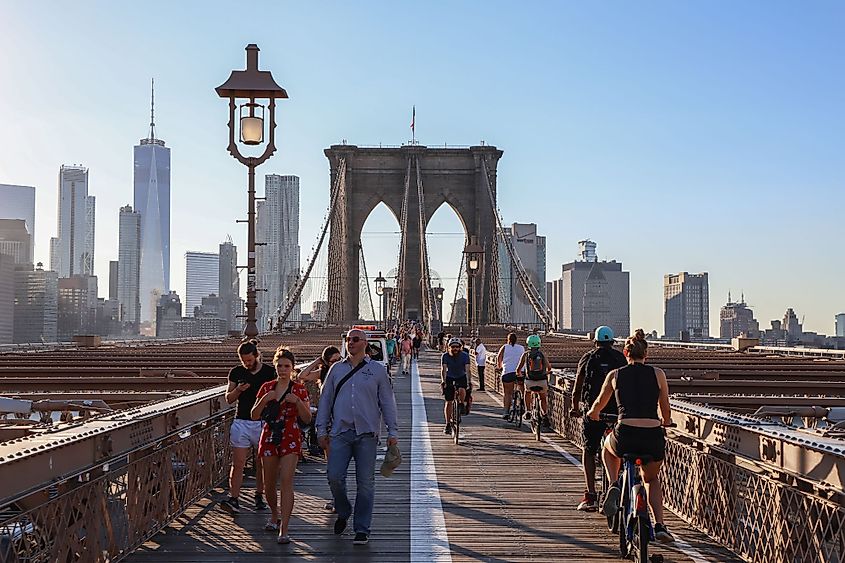
The Brooklyn Bridge in modern times is both a practical necessity - its 6 lanes of traffic allow for major vehicular flow between Manhattan and Brooklyn - but it's also a popular tourist attraction for visitors. Many tourists and visitors that venture to New York City make a point to visit the bridge. Many of these visitors choose to walk across the bridge, and it is a popular photo spot. The bridge offers great views of the East River and Manhattan itself, as well as provides an iconic backdrop for selfies or group photos. The photo and cycle pathway is heavily used, and is an elevated walkway roughly five and a half meters above the main bridge roadway.
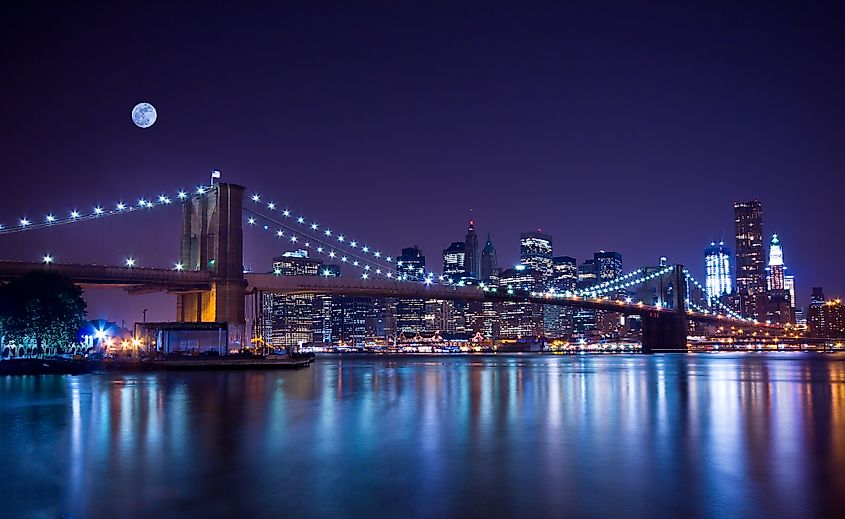
The bridge has also become a cultural icon of both New York and the United States more generally. The bridge is often pictured in movies and TV shows that take place in Manhattan or Brooklyn, and has been a feature point in various films. Once the primary mode of transportation for New Yorkers, the bridge has expanded to be not only a practical bridge, but a symbolic one, bringing two boroughs of New York together, but also serving as a symbol of the city, and of American innovation and infrastructure more widely.
